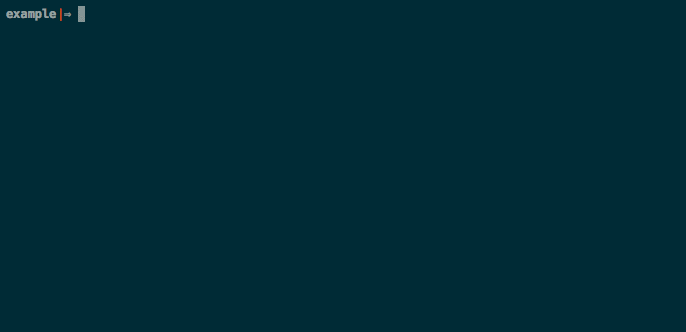mcuadros/go-candyjs
{ "createdAt": "2015-06-03T16:36:48Z", "defaultBranch": "master", "description": "fully transparent bridge between Go and the JavaScript", "fullName": "mcuadros/go-candyjs", "homepage": "", "language": "Go", "name": "go-candyjs", "pushedAt": "2017-10-05T05:18:55Z", "stargazersCount": 451, "topics": [], "updatedAt": "2025-08-03T11:23:05Z", "url": "https://github.com/mcuadros/go-candyjs"}go-candyjs 



Section titled “go-candyjs ”CandyJS is an intent of create a fully transparent bridge between Go and the JavaScript engine duktape. Basicly is a syntax-sugar library built it on top of go-duktape using reflection techniques.
ok but what for …
Section titled “ok but what for …”build extensible applications that allow to the user execute arbitrary code (let’s say plugins) without the requirement of compile it.
Features
Section titled “Features”Embeddable Ecmascript E5/E5.1 compliant engine (duktape).
ctx := candyjs.NewContext()ctx.EvalString(` function factorial(n) { if (n === 0) return 1; return n * factorial(n - 1); }
print(factorial(10));`) //3628800Call Go functions from JavaScript and vice versa.
ctx := candyjs.NewContext()ctx.PushGlobalGoFunction("golangMultiply", func(a, b int) int { return a * b})
ctx.EvalString(`print(golangMultiply(5, 10));`) //50Transparent interface between Go structs and JavaScript.
type MyStruct struct { Number int}
func (m *MyStruct) Multiply(x int) int { return m.Number * x}...ctx := candyjs.NewContext()ctx.PushGlobalStruct("golangStruct", &MyStruct{10})
ctx.EvalString(`print(golangStruct.number);`) //10ctx.EvalString(`print(golangStruct.multiply(5));`) //50Import of Go packages into the JavaScript context.
//go:generate candyjs import fmt...ctx := candyjs.NewContext()ctx.EvalString(` var fmt = CandyJS.require('fmt'); fmt.printf('candyjs is %s', 'awesome')`) // 'candyjs is awesome'Installation
Section titled “Installation”The recommended way to install go-candyjs is:
go get -u github.com/mcuadros/go-candyjs/...CandyJS includes a binary tool used by go generate, please be sure that
$GOPATH/binis on your$PATH
Examples
Section titled “Examples”JavaScript running a HTTP server
Section titled “JavaScript running a HTTP server”In this example a gin server is executed
and a small JSON is server. In CandyJS you can import Go packages directly if
they are defined
previously on the Go code.
Interpreter code (main.go)
...//go:generate candyjs import time//go:generate candyjs import github.com/gin-gonic/ginfunc main() { ctx := candyjs.NewContext() ctx.PevalFile("example.js")}Program code (example.js)
var time = CandyJS.require('time');var gin = CandyJS.require('github.com/gin-gonic/gin');
var engine = gin.default();engine.get("/back", CandyJS.proxy(function(ctx) { var future = time.date(2015, 10, 21, 4, 29 ,0, 0, time.UTC); var now = time.now();
ctx.json(200, { future: future.string(), now: now.string(), nsecs: future.sub(now) });}));
engine.run(':8080');Caveats
Section titled “Caveats”Due to an incompatibility with Duktape’s error handling system and Go, you can’t throw errors from Go. All errors generated from Go functions are generic ones error error (rc -100)
License
Section titled “License”MIT, see [LICENSE]!(LICENSE)
